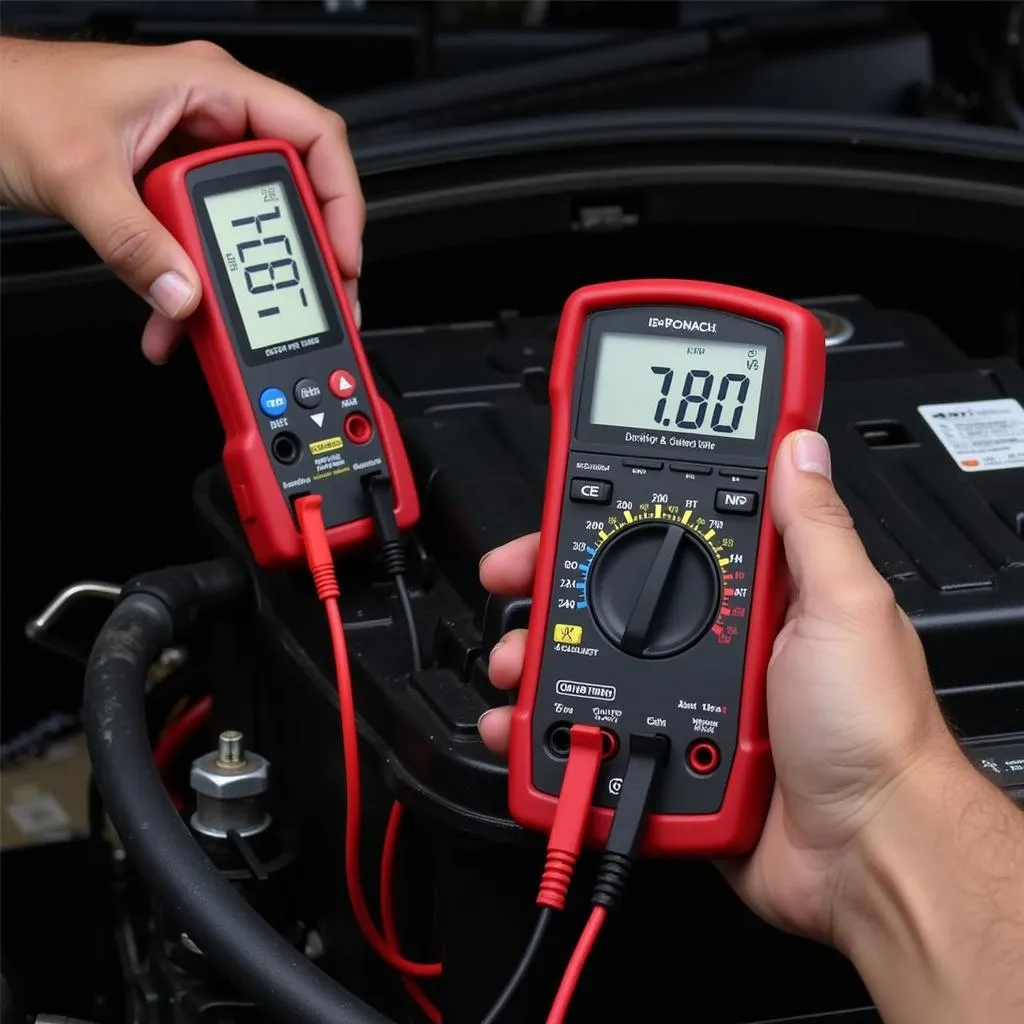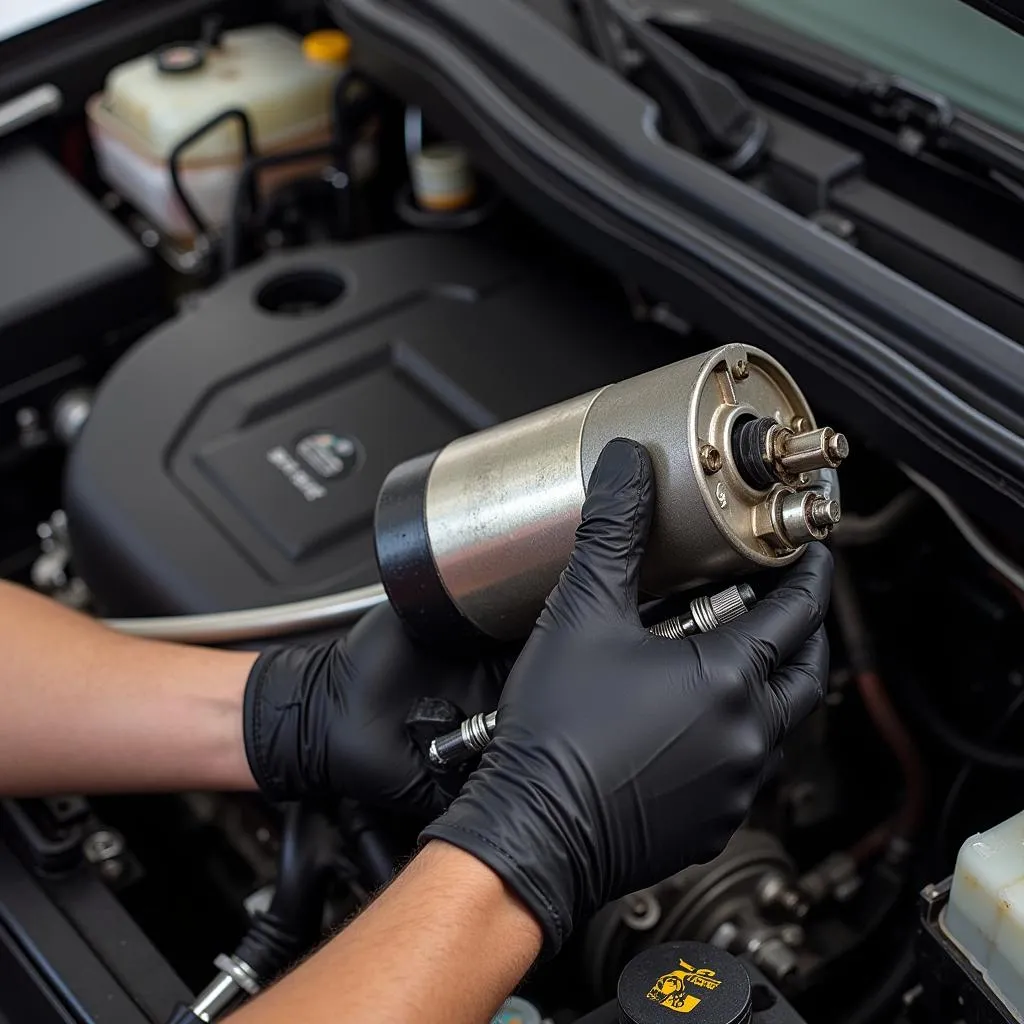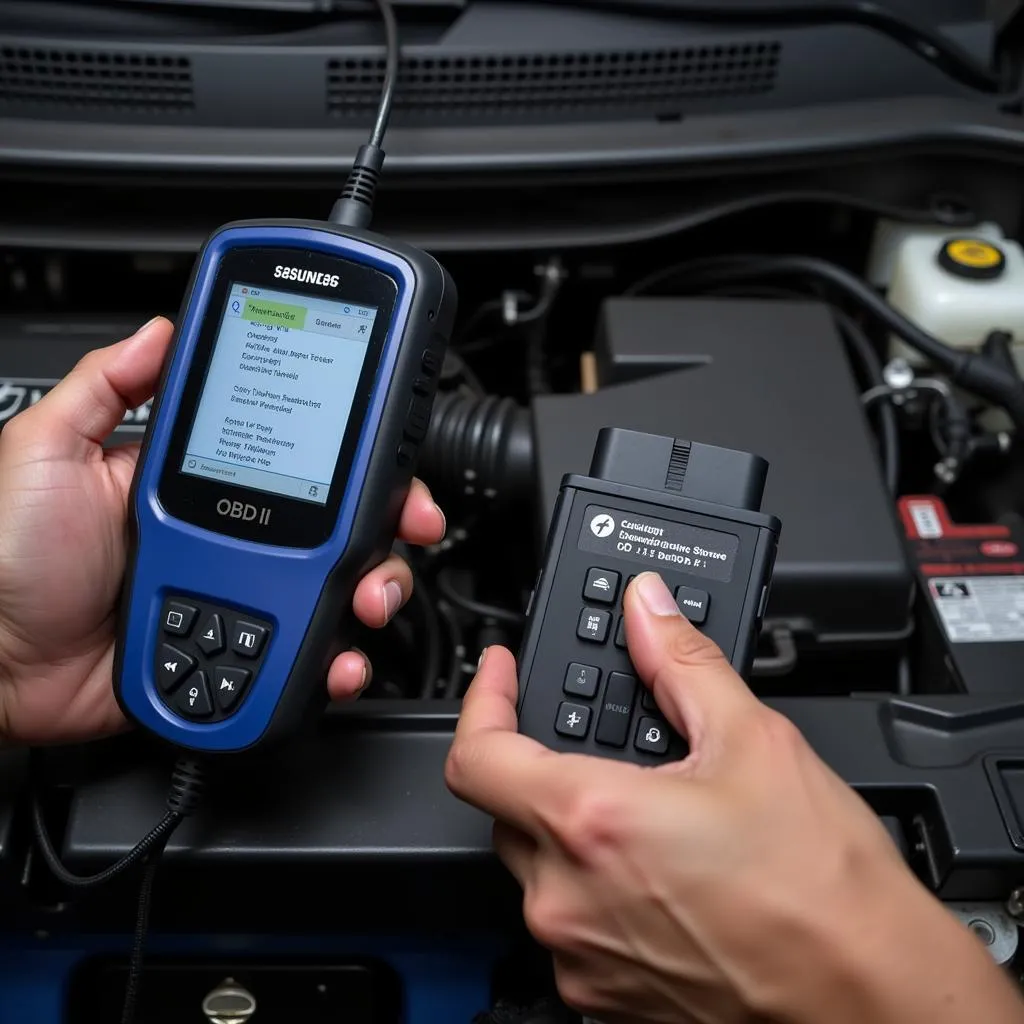Experiencing trouble getting your car started can be a frustrating and often worrying experience. While a battery issue is a common culprit, there are several other reasons why your car might occasionally struggle to start. This article will delve into the common causes of intermittent starting problems and provide insights into potential solutions.
 Testing car battery voltage
Testing car battery voltage
Common Culprits Behind Starting Issues
Before jumping into the more complex potential issues, it’s essential to rule out the most frequent offenders that can cause intermittent starting problems:
- Weak Battery: A weak or dying battery is the most common reason for starting problems. If your car only struggles to start occasionally, it’s possible the battery has enough charge to turn the engine over some days but not others. Cold weather can exacerbate this issue as batteries lose power in low temperatures.
- Loose or Corroded Battery Connections: Even if your battery is in good condition, corroded or loose connections can disrupt the flow of electricity, hindering your car’s ability to start.
- Faulty Starter Motor: The starter motor is responsible for turning the engine over and initiating the combustion process. If your starter motor is faulty, it may struggle to turn the engine over consistently, leading to intermittent starting problems.
- Failing Ignition System: The ignition system is responsible for generating the spark that ignites the fuel in the engine. A failing ignition coil, worn-out spark plugs, or a malfunctioning ignition switch can all lead to intermittent starting issues.
 Inspecting a car's starter motor
Inspecting a car's starter motor
Beyond the Basics: Other Potential Causes
If you’ve ruled out the usual suspects and your car is still experiencing intermittent starting difficulties, several less common but equally important factors could be at play:
- Fuel System Problems: A clogged fuel filter, malfunctioning fuel pump, or a faulty fuel injector can disrupt the flow of fuel to the engine, resulting in starting problems.
- Sensor Malfunctions: Modern vehicles rely on numerous sensors to operate efficiently. A faulty crankshaft position sensor or camshaft position sensor can disrupt the timing of the ignition and fuel systems, leading to starting issues.
- Vacuum Leaks: A leak in the intake manifold or vacuum hoses can disrupt the air-fuel mixture required for combustion, making it difficult to start the engine.
- Security System Issues: In some cases, a problem with the vehicle’s security system, such as a malfunctioning immobilizer, can prevent the engine from starting.
 Using a car diagnostic scanner to identify engine problems
Using a car diagnostic scanner to identify engine problems
Diagnosing and Addressing the Problem
Intermittent starting problems can be challenging to pinpoint without the proper tools and expertise. If your car is experiencing these issues, it’s crucial to consult with a qualified mechanic who can:
- Perform a thorough inspection: This will involve checking the battery, starter, charging system, fuel system, ignition system, and any related sensors.
- Utilize a professional car diagnostic scanner: This tool can read the error codes stored in your car’s computer, providing valuable insights into the underlying problem.
Preventing Future Starting Problems
Once the immediate issue is resolved, there are proactive steps you can take to prevent future starting problems:
- Regular Battery Maintenance: Have your battery tested regularly and replaced as needed.
- Keep Connections Clean: Regularly inspect and clean your battery terminals and connections to prevent corrosion.
- Timely Servicing: Adhere to your vehicle’s recommended maintenance schedule to ensure all systems are functioning correctly.
Conclusion
A car that occasionally struggles to start can be a sign of various underlying issues, ranging from a simple battery problem to a more complex sensor malfunction. Determining the root cause often requires the expertise of a qualified mechanic equipped with the right diagnostic tools. By addressing the issue promptly and adopting preventative measures, you can keep your car starting reliably and avoid the frustration of unexpected breakdowns.